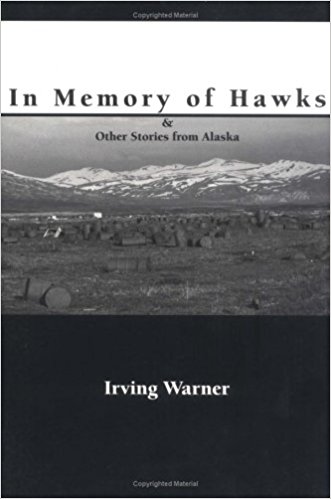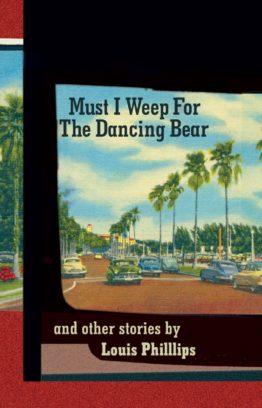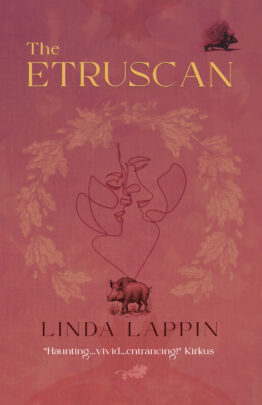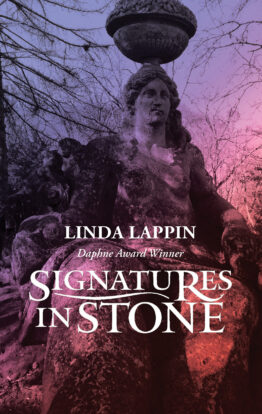Description
Short Fiction. “Irving Warner is a rare find. His stories are filled with the subtlety and power of the great American masters—Raymond Carver, Flannery O’Connor, Eudora Welty, John O’Hara, Irwin Shaw. He has the touch.” -Jack Olsen, author of THE BRIDGE AT CHAPPAQUIDDICK, THE PITCHER’S KID and NIGHT OF THE GRIZZLIES.
Richard felt confident he was going to die. The fuzziness returned, and the voices dulled out to warbles again. Slowly he became much warmer, and the figures moved above him more rapidly. He watched them until a lightness took hold of him and lifted. Rather than be frightened, he enjoyed the rapid lifting sensation; above him Richard saw an intense blueness. He became incredibly warm and, knowing things would soon be over, closed his eyes and concentrated on the feeling that now took hold of him, kindly, but irrevocably. (In the Islands of the Four Mountains).
“Highly recommended for all libraries with strong literary collections, “ -Library Journal
Irving Warner, writer, harmonica artist, retired fish and game biologist, and retired college professor was born in Modesto, California in 1941. He moved to Alaska in 1964 where he stayed until 1996. During that time he worked in fisheries research, with a brief tenure in sea bird studies. Switching careers at the age of 40, he moved into community college teaching, teaching at Kodiak College, University of Alaska, Anchorage system, until 1996 when he took early retirement and took up full time writing. He moved to Washington state in 1996 and then on to Hawaii. He has since moved back to Washington.
Also from Pleasure Boat Studio: Wagner, Descending: The Wrath of the Salmon Queen (2002); The historical novel The War Journal of Lila Ann Smith (2007); Crossing the Water: The Hawaii-Alaska Trilogies (2009)
















Publishers Weekly –
The beautiful but harsh Alaskan landscape permeates the 27 short stories and vignettes of Warner’s somewhat mannered second collection (after In the Islands of Four Mountains). In “Weather,” a pilot narrowly escapes being crushed to death when a fierce windstorm collapses a building at a remote air station. “Highway of the Moon” evokes one character’s passionate, fatal search for a pure northern wilderness. The title story captures the anger of a middle-aged bird researcher who loses his job and takes revenge by smuggling hawks out of Alaska. Though Warner’s dialogue and prose often betray a tin ear and a heavy tread, and the situations of his stories rely on eccentric details rather than solid characterization, the ambiance of his beloved wilderness is well conveyed. The history of Alaska seeps through the lines of these occasionally suspenseful tales, and Warner’s interspersed, elliptical “Reports of Disappearances” add a note of mournful mystery. (Oct.) FYI: A veteran of the Alaska Fish and Game Department, Warner has also pursued a career as a competitive chess player.
Janet N. Ross, Library Journal –
If one were to combine the creative genes of Ernest Hemingway and John Steinbeck, the result might just be Warner (English, emeritus, Univ. of Alaska). In this intriguing collection of short stories, he masterfully captures the essence of wild Alaska. Disappearances and death move hand-in-hand across America’s last frontier, a place equally noted for its eccentric characters and its scenic magnificence. In “A Journal from the Bay of Islands,” a mysterious millionaire takes up residence in an abandoned cannery, with unexpected results. A migration to the far north in “Highway of the Moon” becomes a sobering retreat from life itself. The 16 stories, interspersed with brief commentaries that add vivid color to the whole, make evident a deep connection to the Alaskan experience. Highly recommended for all libraries with strong literary collections.
Craig S. Harrison –
This collection captures the “real” Alaska. Years ago I was a wildlife biologist in the Alaskan bush, and these stories are haunting and evocative of that time. Any reader interested in how the Great Land affects genuine people at work, at play, and just trying to keep alive or sane when working in the elements will enjoy these. Warner’s well-crafted work is wonderful, and imparts a flavor of wild Alaskan and the inevitable adventures on airplanes, boats, as well as the type of characters I met in the Alaskan outback.
In many ways the texture of these stories reminded me of Charles Frazier’s best-selling book Cold Mountain. While a very different type of fiction, Warner’s work and Frazier’s work carefully record the small things that are going on in the natural world around the characters. It is a quality — one also evident in Hemingway — that I enjoy and admire.
It is hard to say which story I enjoyed best — the namesake was wonderful, as was the Journal From the Bay of Islands (in part because my wife and I are big fans of Ecuador). And Fever and Islands of the Four Mountains are superb. We are fortunate that a man with Irving Warner’s talents and experience has spent so much time writing these great gems.
William M –
I’ve lived in Alaska for over 20 years, watching it grow from “the last frontier” to a virtual suburb of Seattle. This book brings back memories–and gut feelings–of what life in Alaska was like: the wilderness shorn of romanticism, indifferent to human life or death; the strange and powerful characters with all their mix of good and bad who shaped everyday experience; the reality that must seem mythical to anyone who hasn’t lived it. Warner’s characters are true-to-life and evoke memories of many people I’ve known here. “In Memory of Hawks” is a must-read for anyone who wants to recall what Alaska was like in the 70s or who wants to know how it feels to be alive at the fringes of civilization.
Matthew Dick –
Two sorts of people write about Alaska: 1) those who take their journalistic or literary talent on a whirlwind tour of the state, then compose an account of `first impressions,’ contrasting what they see with what they know of other places, and 2) those who endure Alaska and write from the gut about the beauty and the beast of the place.
Warner is definitely of the latter sort. If you want la-de-da accounts of what people from cities THINK Alaska and Alaskans are, accounts which will maybe confirm your own first impressions of the Great Land, then this book is not for you. If, however, you want to get as close as possible to Alaska without flying a Cessna into a mountainside or freezing on a mudflat, this book is your ticket. I know because I was a resident of Alaska for 20 years, and became well acquainted with the land and the people.
The only common denominator of these well-crafted and diversely set and plotted stories is Alaska. They are not all about pretty topics, nor do the protagonists always survive. But the stories are no stranger than life itself in the Far North, and they are entertaining. A couple of years ago, a visiting German friend of mine picked up this collection and could not put it down for two days until it was finished, which put quite a damper on our visit.
Warner’s tales have broader literary value than your run-of-the-mill, sled-and-igloo saga, in that they aptly analyze universal human motivations and emotions under adverse circumstances. Simply put, they are a literary treat. I strongly recommend this book